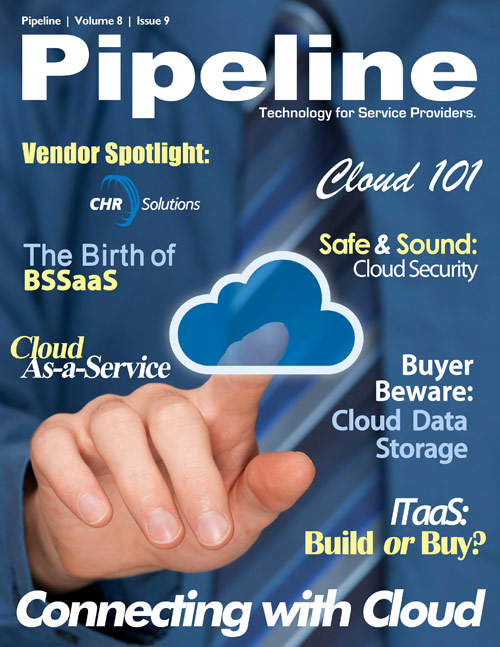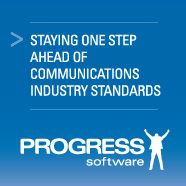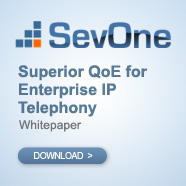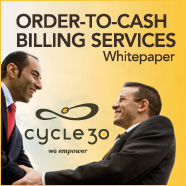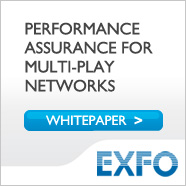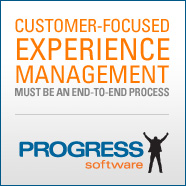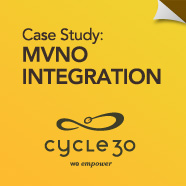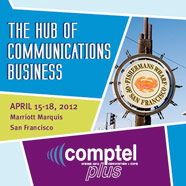CHR Builds the Fast Lane to Cloud Computing
By: Jesse Cryderman

Ask any "man on the street" how many phone companies he can name, and you'll probably end up with a list that you can count on one hand. But as anyone working in telecommunications knows, that's hardly representative. Still, how many smaller communications service providers (CSPs) are operating in the United States?
You might be surprised to learn that there are roughly 1400 Tier 2 and Tier 3 communications service providers distributed throughout the United States, most in rural locales, and they're all facing considerable challenges. Competitive, regulatory, and technological burdens have placed increasing pressure on rural service providers, which necessitates changes in operations as well as back-office strategy. Outsourced operations and managed services are especially attractive to these smaller CSPs, as they might not have the capital to invest in an advanced customer relations portal, a converged billing platform, or an LTE network build out, for instance.
That's where Houston-based CHR Solutions steps in. The company has maintained a dominant market position with Tier 2 and Tier 3 CSPs for over 60 years, serving more than 900 U.S. telephone companies, Internet companies, cable TV providers and wireless (Cellular, PCS and Wireless ISP) companies. This extensive experience in the Tier2/3 market is key to CHR's success. Rural telcos have multi-generational relationships with the communities they service and understand their customer base in ways that multi-national conglomerates simply cannot. This unique, multi-decade kinship mirrors the relationship CHR has with its CSP customers.
The world is changing, however, and a business once dominated by copper lines and rotary phones is being replaced by packet-driven, high-speed terrestrial and mobile broadband networks, and the advanced service offerings they enable. How is CHR enabling rural CSPs to maintain their identity and improve their margins in a world that's moving at 4G speeds?
The Platform of the Future
Marc Hayden, executive vice president of sales, marketing, and product management, succinctly defines CHR Solutions as a "Network Enabler," and looking at the wide range of services the company offers—everything from software, systems integration, and network engineering to accounting and compliance—this is an accurate moniker.
"We help telcos identify the pieces necessary to build the network, how to monetize the network, and how to build the enhanced services platform of the future," explained Hayden.
What is that platform of the future? "It's the cloud," said CEO James Taylor, while pointing to a whiteboard drawing of a cloud delivering services to myriad customers and creating revenue in all directions.
During a recent trip to CHR headquarters in Houston, I quickly learned his enthusiasm and energy for this future is contagious. "CHR enables the Tier 2/3 market to get into offering cloud services without the CapEx," he summarized. "The Tier 2/3 market can leverage our cloud-based applications and services to generate new offerings that are integrated to their billing system and automatically provisioned to their customers."

Creating Revenue in the Cloud
Lowering costs is an important strategy for CSPs, but creating new revenue over the long-term is paramount. CHR aims to kill two birds with one stone. Fredel Thomas, director of product management, explained, "A cloud service is not just the ability to reduce operating expense. At CHR, we focus on both reducing operational costs and creating new revenue streams for our clients via the cloud."
"For example, we offer productivity solutions that enable our clients' small to medium business (SMB) customers to reduce their operational costs," continued Thomas. "At the same time, our clients can both reduce their own operational costs by driving their enterprise applications through our cloud and create new revenue streams by offering new suites of business applications and services to their SMB customers. It's a win-win for clients."
